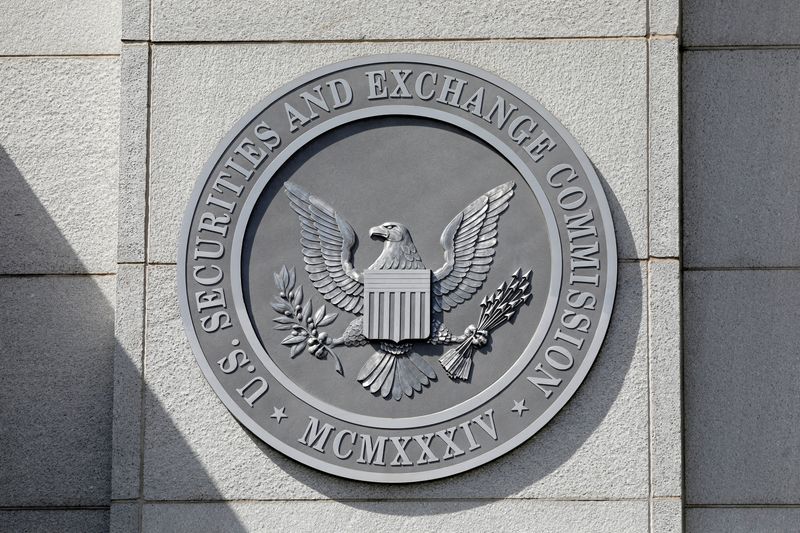By Laura Matthews and Sinead Cruise
(Reuters) - The U.S. Securities and Exchange Commission adopted a rule in February 2023 to shorten the settlement cycle for securities transactions from two business days after the trade to one, beginning on May 28, 2024.
Dubbed T+1, the move, which spans equities and corporate bonds, is expected by regulators and market participants to bring several benefits such as a reduction in counterparty risk and an increase in capital and margin efficiencies. Participants in much of the rest of the world are still settling on T+2.
Participants in the U.S. securities market will need to follow the new standard to settle trades the next business day after the trade. Settling trades more quickly will lower credit, liquidity and market risks as the current two-day practice means broker dealers must tie up a lot of capital, especially during times of volatility, to ensure they can clear and settle their clients' transactions, regulators and market participants say.
Here are some facts about the move to T+1 and how other markets are responding.
U.S., CANADA AND MEXICO
The U.S. is ensuring faster settlement of securities transactions prompted by the 2021 events surrounding the "meme stock" GameStop (NYSE:GME). The U.S. stepped up faster settlement in 2017, moving from a three-business-day settlement cycle to the existing standard almost four years after the euro zone did so.
While compliance with T+1 takes effect in the U.S. on May 28, some countries such as Canada and Mexico begin settling trades in one business day effective May 27.
EUROPEAN UNION
The European Union is also looking to follow the United States' move to T+1 but the timing has not been announced. The European Securities and Markets Authority is exploring the best path forward and has been consulting with its market participants to better understand the issues, costs and benefits of making the move. It aims to publish a final report later this year.
Financial services experts believe the EU's move to next day settlement will be more complex because of the fragmented nature of stock trading in the region.
Trade body European Fund and Asset Management Association has warned about the potential for market disruption while the continent adapts to U.S. T+1, flagging FX risk as a major concern.
UK
Britain is also looking to speed up settlement in its markets with expectations that a switch could happen between 2025 and 2026. Authorities in the UK set up a task force early last year to look at the benefits and challenges of potentially having next day settlement. An interim report is expected in the first half of this year, with a final one to arrive by end-2024.
ASIA

Trades in India are currently being settled one day after the trade, after the country's Securities and Exchange Board completed its phased-in transition in January 2023. Now India has set its sights on same-day settlement.
It joins China where stock settlement is T+0 and T+1 for cash settlement. Most other markets in the region remain on T+2, assessing and waiting to see how markets that have already made the leap get on.